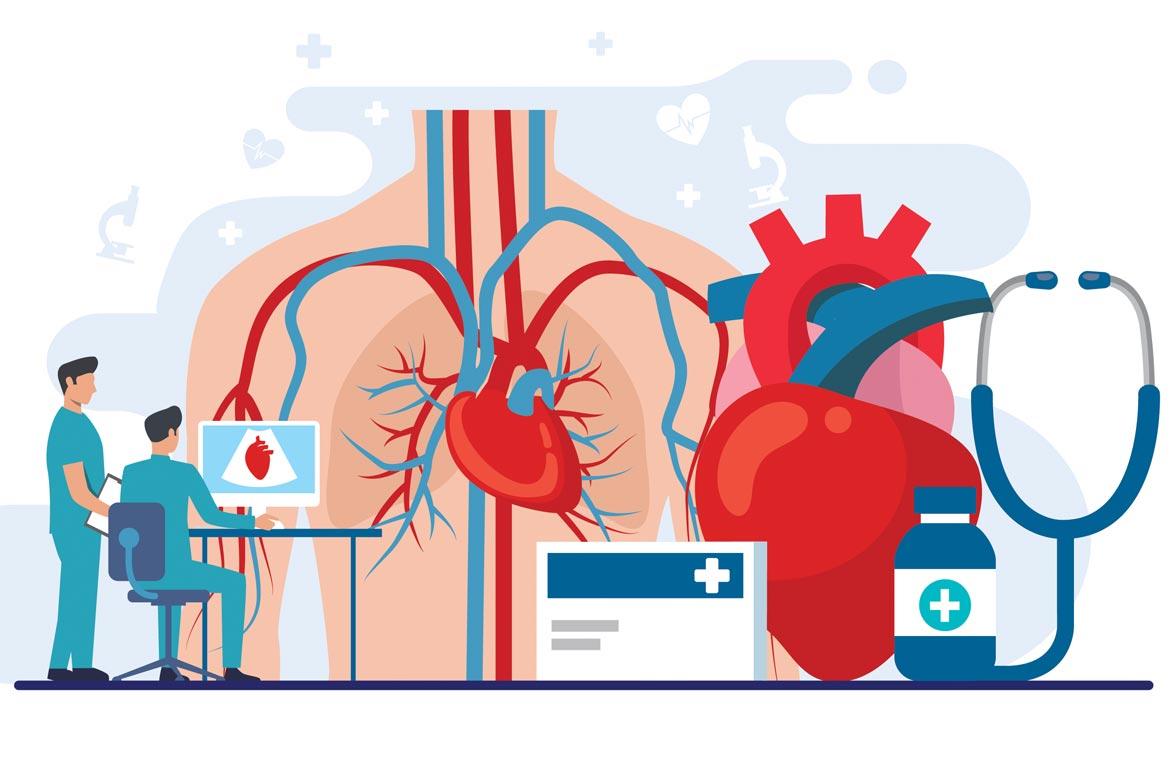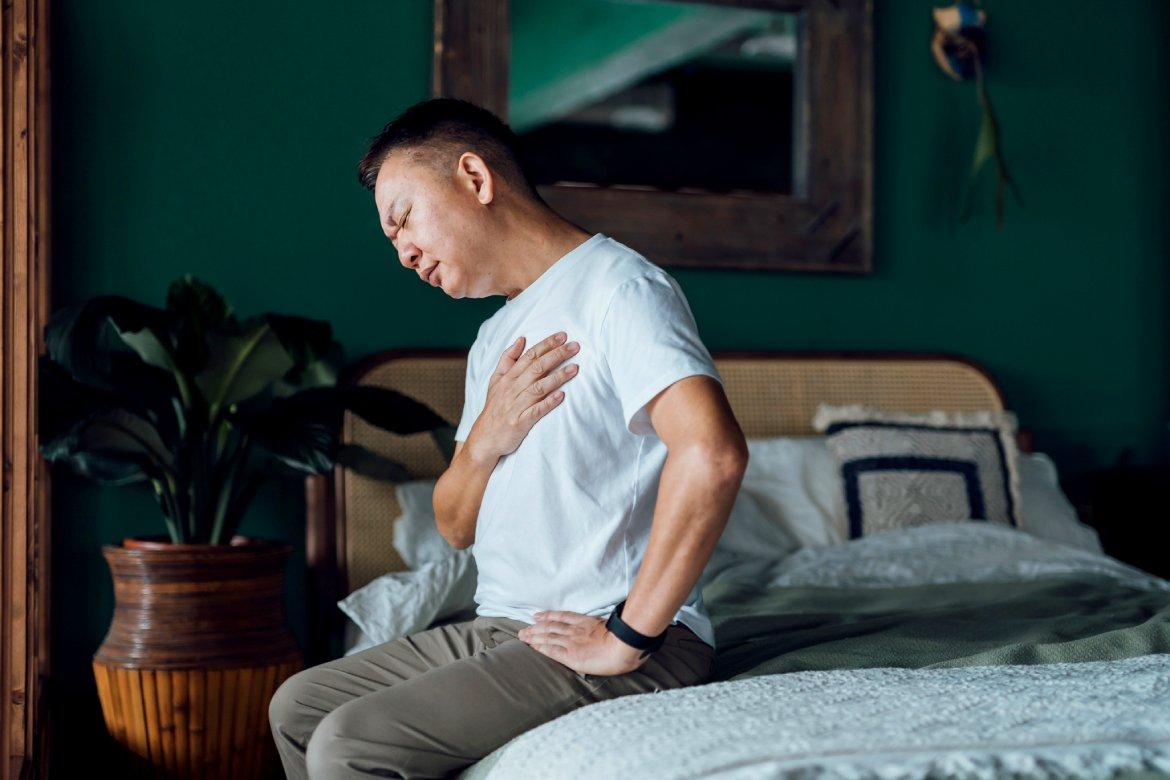-
-
Featured Care Areas

Angina Pectoris (Chest Pain)
Frequently asked questions
A: You may experience a sharp pain in your chest if you have strained or pulled a chest muscle while doing a strenuous activity (such as heavy lifting). This is not the same as angina.
A: If you experience chest pain while laughing, it is more likely to be due to an infection in your lungs. Each time your lungs expand, such as when you laugh or sneeze, the swollen and inflamed tissues in your lungs rub against each other and cause sharp, stabbing chest pain. This is not the same as angina.
A: When you are feeling emotionally distressed, the part of your brain that regulates emotions may respond by stimulating your vagus nerve. This nerve begins in the brain stem and is connected to your neck, chest and abdomen. Overstimulation in the vagus nerve can cause pain and nausea. This is not the same as angina.
A: If you suffer from angina and are experiencing chest pains, it's best to pause what you're doing and rest. Focus on your breath and try to calm yourself down and relax. Take deep breaths through the nose and exhale slowly through your mouth.
You should also take the medication prescribed by your doctor.
As angina is related to your coronary arteries being blocked, drinking water or coffee, taking paracetamol or walking are unlikely to offer relief.
A: Angina chest pains typically last between 3 – 5 minutes. It can sometimes stretch to 30 minutes.
A: Chest pains due to angina are usually triggered by different factors, depending on the type of angina you are experiencing. They are usually temporary – lasting between 3 – 30 minutes.
| Type of angina | Chest pains commonly triggered by... |
|---|---|
| Microvascular angina | Daily activities or stressful moments. |
| Stable angina | Physical exertion, such as when you exercise or climb the stairs. |
| Unstable angina | No specific triggers. May occur anytime, even when you are resting. |
A: Angina is a painful sensation felt in your chest when your heart is not getting enough oxygen-rich blood. It is not known to cause high blood pressure. However, high blood pressure can increase your risk of experiencing angina because your arteries are hardened due to built-up fatty deposits in the artery walls.
A: It can be challenging to fall asleep while experiencing chest pains. You can try the following sleep positions whenever you feel shortness of breath due to angina.
Always keep your head elevated with pillows. Then try either positions:
- Lie on your side, with a pillow between your legs. Try to keep your back straight.
- Lie on your back, with a pillow under your knees. Your knees will be slightly bent to accommodate the pillow.
This coverage checker is brought to you by Health Insured, an online resource that helps you understand your health coverage in Singapore.
This page has been reviewed by our medical content reviewers.
Need help?
For enquiries, please call
+65 6575 7575
For appointment bookings, please WhatsApp
+65 8111 9777








